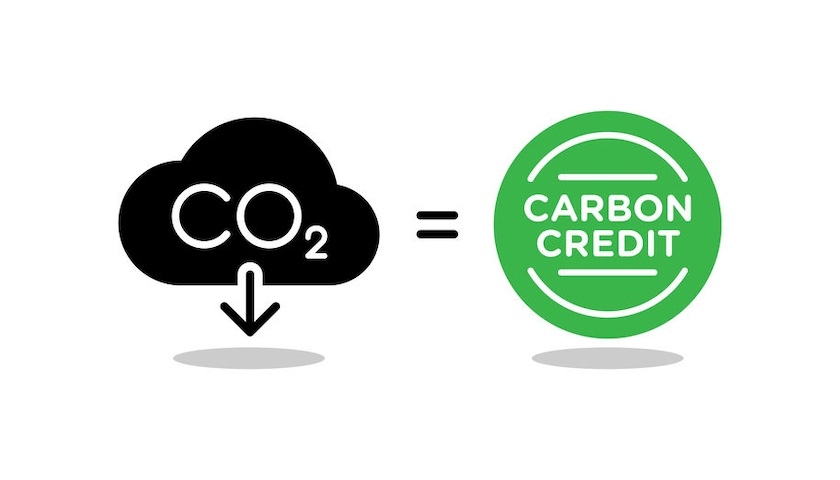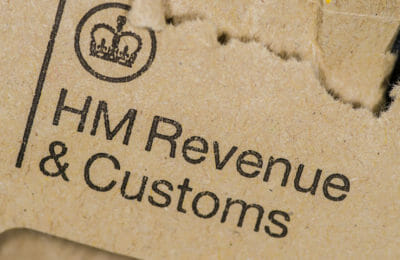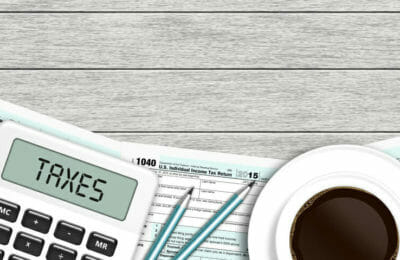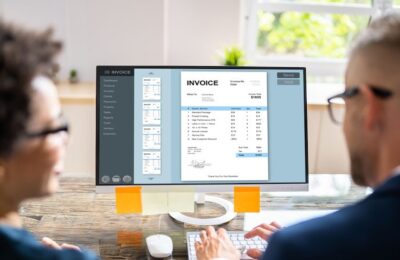Many businesses are working hard to reduce their carbon emissions. Some of the steps they take are practical. These can include reducing and recycling waste, reducing energy usage and sponsoring tree planting programmes. Another method is to buy carbon credits to offset some of a business’s emissions.
What are carbon credits?
Despite taking practical measures to reduce emissions, not all businesses can reach net zero using these alone. This is where carbon credits come in.
These credits can be bought from a range of organisations. Each one represents the removal (or avoidance) of one tonne of greenhouse gas emissions. This can be achieved in various ways, such as a change of land use or the generation of renewable energy.
Different types of carbon credits
There are two main types of carbon credit.
Firstly, there are credits that can be bought on the compulsory market. Energy intensive industries such as aviation and power generation are subject to this market. Companies in these sectors have a legal obligation to limit their emissions. However, they can buy or sell allowances with other companies.
Secondly, there is a voluntary market for carbon credits. These can be bought by companies who want to offset their emissions. There is a wide range of carbon credit providers.
Changes to VAT for voluntary credits
To date, voluntary credits have not fallen inside the scope of VAT. This is because, when they were first introduced, HMRC took the line that they couldn’t be incorporated into an onward supply. There was also no evidence of a secondary market in them.
These things have now changed. HMRC now recognises the emergence of a secondary market that trades carbon credits. It also now sees that businesses do incorporate carbon credits into their onward supplies.
As a result of these things, HMRC has decided to change the rules regarding voluntary credits. From 1st September 2024, most voluntary credits will be subject to VAT where the place of supply is the UK.
Exemptions
HMRC has announced that VAT will not apply to voluntary carbon credits in the following situations:
- The first issue of credit by a public authority
- Holding credits as an investment where there is no economic activity
- Donations made to carbon credit projects
- Sales of credits from self-assessed projects that have no independent or third-party verification.
How will the carbon credit VAT changes affect me?
Quite simply, if your business buys voluntary credits, you’ll pay standard rate VAT of 20% from September 2024.
However, before resorting to carbon credits, it’s a good idea to take other steps to reduce your carbon footprint. Even simple changes by SMEs can result in major reductions of emissions. For example, you could:
- Upgrade equipment to more energy-efficient alternatives
- Switch to more sustainable energy providers
- Encourage less polluting transportation such as cycling or car-sharing by employees
- Choose suppliers that work hard to keep their own carbon footprint low
For more ideas, see this guidance from the Department of Energy and Climate Change.
Summary
If you purchase voluntary carbon credits from September 2024, you’ll pay VAT in most cases. However, if you’re at an early stage of reducing your carbon footprint, consider making practical changes to your operations. At THP, our Sutton branch recently achieved Green Mark Accreditation for our work to reduce our environmental impact.
About Mark Ingle
Owner-manager business specialist, Mark Ingle is key to building relationships with clients at the Chelmsford office. “I like to see clients enterprises grow and succeed.” Mark explains, “The team here has a lot to offer and I can see a lot of new businesses responding to that.”
Having worked for accountancy practices in London and Essex, Mark has worked with a range of companies varying in size. For Mark, THP stands out for its “local firm approach with the resources of a larger practice.”
Although a keen traveller, Mark is focused on giving his clients at THP the highest service, “Right now, I aim to help the clients we have to the best of my ability which will help me attract more of the right clients in the future.”
Mark’s specialist skills:
- Annual and Management Accounts
- Tax and VAT
- Strategy and Business Planning
- Marketing and Sales
- Business Development












